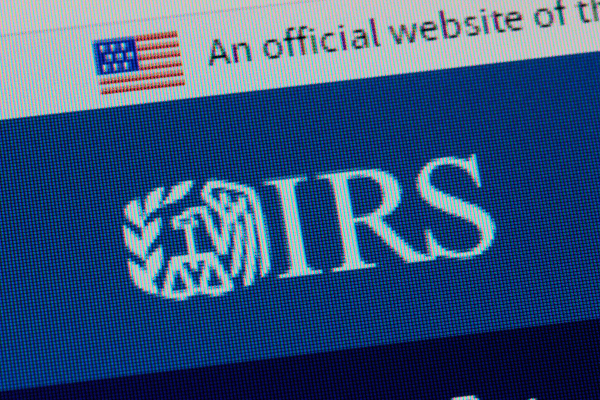Is Tax Evasion a Felony? Understanding the Legal Implications

Tax evasion is a serious issue that can have far-reaching legal consequences. Many taxpayers wonder, “Is tax evasion a felony?” Everyone knows that tax crimes are regarded as severe, but to what extent? “Can you be jailed if you don’t pay the tax imposed by the government?”
This article aims to clarify the legal implications of evading taxes and help you understand the potential risks involved. We’ll explore the definition of tax evasion, its differences from tax avoidance, and the penalties that can result from such actions.
What is Tax Evasion?

Tax evasion is a serious offense beyond simply making a mistake on your tax return. It involves deliberately trying to pay less in taxes than you legally owe. Let’s break down what tax evasion means:
Tax evasion occurs when someone intentionally underpays or doesn’t pay their taxes. This often involves purposely misreporting financial information to lower their tax liability.
To be considered tax evasion, three key elements must be present :
- A tax deficiency exists
- There’s an affirmative act to evade or attempt to evade tax
- The action is willful
The term “willful” is crucial here. Prosecutors must prove beyond reasonable doubt that the accused intentionally violated a known legal duty. This means showing that the person deliberately took steps to avoid paying taxes they owed.
It’s crucial to understand the difference between tax evasion and tax avoidance:
- Tax evasion is illegal. It’s an attempt to avoid paying the taxes you owe.
- Tax avoidance is legal. It involves using allowed methods to reduce your tax liability.
The Internal Revenue Code outlines specific actions that constitute tax evasion. These might include filing false tax returns, hiding income, or overstating deductions. The Internal Revenue Service (IRS) takes these violations seriously and may pursue criminal charges for such actions.
Remember, honest mistakes aren’t considered tax evasion. The key is intent.
Is Tax Evasion Considered a Felony?
Yes, tax evasion is indeed a felony under federal law. The Internal Revenue Code, specifically 26 U.S.C. § 7201, classifies it as one of the most serious tax offenses. As a white-collar crime, tax evasion carries significant legal consequences.
Tax evasion requires three key conditions for felony classification:
- Willful attempt to evade or defeat tax: Prosecutors must prove the willful intent to evade taxes.
- Substantial tax deficiency: There must be a significant amount of unpaid taxes.
- Affirmative act constituting evasion: Examples of such acts include:
- Deliberately underreporting income on tax returns
- Concealing assets to avoid tax liability
- Filing false tax returns with intent to defraud
- Using complex schemes to hide true tax liabilities
It’s important to note that tax evasion requires more than just failing to file a tax return or pay taxes. These actions alone, while still serious, may be charged as misdemeanors under 26 U.S.C. § 7203. Tax evasion necessitates an affirmative act to evade assessment or payment of tax.
For instance, if someone transfers assets to another person to prevent the Internal Revenue Service from determining their actual tax liability, this could be considered willful evasion.
Tax evasion also includes trying to avoid paying a tax obligation that has become due. Federal authorities take these offenses seriously. Penalties for tax evasion convictions can be harsh and include jail time and large fines.
Moreover, a felony conviction can have long-lasting effects on a person’s life, potentially limiting future employment opportunities and other rights.
Honest mistakes or misunderstandings about tax law typically don’t qualify as tax evasion. The key factor is intent. If you’re unsure about your tax obligations, it’s always advisable to consult with a qualified tax professional to avoid potential legal issues and ensure compliance with tax laws.
Legal Consequences of Tax Evasion

Tax evasion is a serious offense that carries severe legal repercussions, potentially altering the course of an individual’s life or a corporation’s future. The consequences are multifaceted, encompassing criminal and civil penalties that can have long-lasting effects.
Criminal Penalties
On the criminal front, those convicted of tax evasion face the possibility of imprisonment for up to 5 years for each count. While this represents the maximum sentence, the typical jail time ranges from 3 to 5 years, depending on the case’s specifics.
Alongside incarceration, substantial fines are imposed – up to $250,000 for individuals and a staggering $500,000 for corporations. The court may also mandate a probation period, usually 1-3 years, which involves strict oversight and restrictions on the offender’s activities.
The financial ramifications extend beyond fines. Offenders must pay restitution, which includes repaying all evaded taxes plus accrued interest. This can amount to a significant sum, especially considering the time that may have passed since the original evasion occurred.
Civil Penalties
Civil penalties add another layer of financial burden. The Internal Revenue Service (IRS) can impose a fraud penalty of up to 75% of the underpayment due to fraud.
Failure to file and failure to pay penalties can each reach up to 25% of the unpaid taxes, accruing monthly at rates of 5% and 0.5%, respectively. Interest accumulates on unpaid taxes and penalties, further increasing the overall debt.
Additional Consequences
The consequences of tax evasion extend far beyond monetary penalties and potential imprisonment. A felony conviction for tax evasion can severely limit future employment opportunities and often results in the loss of professional licenses. This can be devastating for individuals in fields requiring specific certifications or clearances.
The damage to personal and business reputations can be irreparable, affecting relationships and future business prospects.
Financial challenges persist long after any fines or restitution have been paid. Those convicted of tax evasion often face significant difficulties in obtaining loans or credit, as financial institutions view them as high-risk clients. In extreme cases, the IRS may seize assets to satisfy outstanding tax debts.
It’s important to note that courts have considerable discretion in sentencing. Factors such as the specific characteristics of the offense and the defendant’s criminal history play a crucial role. Effective legal representation can potentially impact the sentencing outcome for first-time offenders, but the consequences remain severe.
Given these far-reaching and severe repercussions, it’s clear why tax evasion is treated as a serious federal crime. The combination of potential long-term imprisonment, substantial financial penalties, and lasting personal and professional damage makes tax evasion a high-risk offense with implications that can echo throughout an individual’s or corporation’s future.
How Does the IRS Detect Tax Evasion?
A major federal offense, tax evasion, entails the deliberate attempt to avoid or beat any tax that is imposed by law. It is possible for taxpayers, entrepreneurs, accounting specialists, and legal counsel to avoid the harsh consequences linked to tax evasion by being aware of how the IRS identifies it.
IRS Detection Methods
The IRS employs several sophisticated methods to detect tax evasion, ensuring that taxpayers comply with their legal duty to pay taxes. These methods include:
Computer Scoring (Discriminant Information Function System)
The IRS uses the Discriminant Information Function (DIF) system to score tax returns. This computer system analyzes tax returns and assigns a score based on the likelihood of errors or discrepancies. High DIF scores can trigger an audit, making it crucial for taxpayers to file accurate and honest tax returns.
Information Matching (W-2s, 1099s, etc.)
The IRS matches information from tax returns with third-party documents such as W-2s and 1099s. Discrepancies between reported income and the information provided by employers and financial institutions can raise red flags, prompting further investigation into potential tax fraud.
Related Examinations (Business Partners, Investors)
When one taxpayer is audited, the IRS may also examine the tax returns of related parties such as business partners or investors. This approach helps identify coordinated attempts to evade taxes and ensures that all involved parties are compliant with tax laws.
Whistleblower Reports
The IRS encourages individuals to report suspected tax evasion through its Whistleblower Office. Whistleblowers can provide valuable information leading to the detection and prosecution of tax crimes, and they may receive financial rewards for their assistance.
Lifestyle Audits (Comparing Reported Income to Visible Lifestyle)
The IRS conducts lifestyle audits to compare a taxpayer’s reported income with their visible lifestyle. Significant discrepancies between income and lifestyle, such as luxury purchases or expensive vacations, can indicate unreported income and potential tax evasion.
Red Flags That May Trigger an Audit
Several factors can trigger an IRS audit, signaling potential tax evasion:
- Large Discrepancies Between Income and Deductions: Significant differences between reported income and claimed deductions can raise suspicion.
- Consistently Reporting Business Losses: Regularly reporting business losses can suggest an attempt to evade taxes.
- Unusually High Charitable Donations Relative to Income: Disproportionately high charitable contributions compared to income can attract IRS scrutiny.
- Failure to Report All Income, Including Foreign Accounts: Omitting income from foreign accounts or other sources is a common trigger for audits.
- Round Numbers Throughout the Tax Return: Using round numbers excessively can indicate falsified or estimated figures.
IRS Criminal Investigation (CI) Division
The IRS Criminal Investigation (CI) Division plays a crucial role in investigating potential tax crimes. This specialized unit employs advanced data analytics and financial forensics to detect and prosecute tax evasion.
The CI Division focuses on serious tax violations, including evasion, fraud, and false tax returns. CI agents use sophisticated techniques to analyze financial data and uncover fraudulent activities. They also work closely with other federal agencies to investigate and prosecute complex tax crimes.
How Does the IRS Prosecute Tax Evasion?

Tax evasion is a serious offense, and the IRS takes rigorous measures to prosecute individuals and businesses attempting to evade taxes. The IRS Criminal Investigation (CI) Division is responsible for investigating and prosecuting tax evasion cases, ensuring compliance with the Internal Revenue Code and other related statutes.
Sources of Criminal Investigations for IRS Special Agents
Criminal investigations can begin from various sources:
- Internal Information: Revenue agents, revenue officers, or investigative analysts within the IRS may detect signs of tax fraud.
- Public Tips: Information from the public can lead to investigations.
- Law enforcement Cooperation: Tax evasion may be discovered through ongoing inquiries by the offices of the US Attorneys or other agencies involved in law enforcement.
Preliminary Analysis and Investigation Approvals
A careful review of the data is the first stage in the prosecution of tax evasion. To find out if there may have been criminal tax fraud or other financial crimes, special agents examine the data. This preliminary stage is known as a “primary investigation.” The information is reviewed by the special agent’s supervisor, who decides whether to proceed with a “subject criminal investigation.” Approval from the special agent in charge is required, ensuring multiple layers of oversight before an investigation advances.
Conducting a Criminal Investigation
Once a criminal investigation is initiated, special agents gather evidence to prove the crime. Techniques used include:
- Interviewing Witnesses: Speaking with third-party witnesses who might have relevant information.
- Conducting Surveillance: Monitoring suspects to gather evidence.
- Executing Search Warrants: Searching properties for incriminating evidence.
- Forensic Analysis: Examining evidence in accredited forensic labs.
- Subpoenaing Records: Obtaining bank records and other financial data.
During the investigation, special agents collaborate with IRS Chief Counsel Criminal Tax Attorneys to ensure all legal aspects are properly addressed.
Prosecution Recommendations by the Special Agent
After collecting and analyzing evidence, the special agent and their supervisor determine whether the evidence supports criminal charges. If insufficient evidence is found, the investigation is discontinued.
If sufficient evidence is available, the special agent prepares a “special agent report” detailing the findings and recommending prosecution. This report undergoes several layers of review, including:
- The supervisory special agent
- The criminal investigation quality review team
- CI special agent in charge
- CI assistant special agent in charge
Prosecution
If the IRS CI Division recommends prosecution, the case is forwarded to the Department of Justice Tax Division (for tax investigations) or the United States Attorney (for other investigations). The prosecutors then decide whether to proceed with the case. If accepted, IRS special agents assist in trial preparation, but the prosecutors manage the prosecution.
Conviction
The goal of an IRS Criminal Investigation is to secure a conviction, either through a guilty verdict or plea. Annually, around 3,000 criminal prosecutions serve as a deterrent, reinforcing to taxpayers that tax fraud is a serious crime with severe consequences.
Common Methods of Tax Evasion

Tax evasion involves various illegal strategies to avoid paying taxes. Common methods include:
- Underreporting Income: Failing to report all earned income is a frequent tactic used to reduce taxable income.
- Inflating Deductions or Credits: Overstating deductions or credits to lower tax liability is another common method.
- Hiding Money in Offshore Accounts: Concealing assets in foreign accounts to avoid tax liabilities.
- Failing to File Tax Returns: Not filing tax returns at all is a direct way to evade paying taxes.
- Using False Social Security Numbers: Providing incorrect Social Security numbers to mislead the IRS and avoid taxes.
What’s the Difference Between Tax Evasion and Negligence?
Tax evasion and negligence differ significantly in terms of intent and consequences. Tax evasion is an intentional act where individuals deliberately underpay or avoid taxes. This requires proof of willfulness and is considered a felony offense, leading to severe penalties, including imprisonment.
In contrast, negligence involves unintentional errors or oversights in tax preparation stemming from a lack of reasonable care. Negligence usually results in civil penalties, such as fines, but not criminal charges.
Key factors distinguishing the two include intent—deliberate actions suggest evasion, while accidental errors point to negligence. A consistent pattern of avoidance indicates evasion, whereas isolated mistakes imply negligence.
The magnitude of the error also plays a role; substantial discrepancies hint at evasion, while minor errors suggest negligence. Additionally, cooperation with the IRS is telling; resistance to correcting mistakes indicates evasion, whereas a willingness to cooperate suggests negligence.
Famous Tax Evasion Cases
Here are some of the most famous tax evasion cases in history, with background, charges, outcomes, and lessons learned:
Al Capone (1931): Al Capone was an infamous Chicago gangster in the early 20th century who was linked to murder, extortion, and bootlegging. Although prosecutors failed to make any other charges stick, Capone was eventually brought down for tax evasion. In 1931, Capone received an 11-year sentence for not paying $215,000 in taxes. He did not serve the full term and retired in Florida. Capone’s case showed that even income from illegal activities is subject to tax and that the IRS can prosecute tax evasion even when other charges fail.
Wesley Snipes (2008): Actor Wesley Snipes was convicted in 2008 on three counts of failing to file a tax return. Snipes reportedly concealed income in accounts located overseas and failed to file federal returns for income taxes for several years, resulting in an estimated tax obligation of $12 million. After failing the appeal, Snipes received a three-year prison sentence. Snipes’ case demonstrated that even celebrities are not above the law when it comes to taxes.
Leona Helmsley (1989): Leona Helmsley, a billionaire hotel operator, was dubbed the “Queen of Mean” for her attitude towards others. She with her spouse were accused of using their firm to claim several million dollars in personal costs in order to avoid paying taxes. Helmsley was convicted of three charges of tax evasion in 1989 and sentenced to 18 months in a federal jail. Helmsley’s iconic quote: “We don’t pay taxes.” “Only the little people pay taxes,” emphasized the pride of some rich taxpayers.
Walter Anderson (2006): Walter Anderson, a US citizen entrepreneur, was found guilty of the greatest tax evasion case in US history, having evaded more than $200 million in taxes. He concealed his earnings via aliases, offshore accounts with banks, and shell corporations. Anderson pleaded guilty in 2006 and received a prison term to nine years in jail and a $200 million reparation order. Anderson’s case demonstrated the lengths some people go to in order to avoid paying taxes, as well as the severe penalties they face if found.
Ty Warner (2013): Ty Warner, the brains behind of the Beanie Babies, pleaded convicted to tax cheating in 2013. He failed to register $5.5 million in income obtained in a hidden Swiss bank account, resulting in tax evasion. Warner received a sentence of two years probation, 500 hours of volunteer work, and a $53 million fine. Warner’s case emphasized the escalating assault on offshore tax avoidance and the severe repercussions for those caught.
Offshore accounts, shell corporations, and other sophisticated tactics for concealing income and evading taxes have become common in these prominent instances.
The cases also demonstrate the severe consequences tax evaders face, including lengthy prison sentences, hefty fines, and reputational damage. Ultimately, these cases serve as cautionary tales that tax evasion, no matter how wealthy or famous the individual, is a serious crime with serious penalties.
Save Taxes with Professionals
Throughout this article, we’ve explored the serious nature of tax evasion and the methods the IRS employs to detect and prosecute it. Key takeaways include recognizing common tax evasion tactics, understanding the difference between tax evasion and negligence, and being aware of the stringent penalties associated with fraudulent activities.
To ensure compliance and maximize your tax benefits, consider consulting a professional CPA. This professional support is invaluable in avoiding costly mistakes and ensuring that you are not inadvertently crossing into illegal territory.
If you’re looking to optimize your tax strategy and avoid potential pitfalls, it’s time to consult with a trusted CPA. At TaxCredits, we connect you with experienced professionals who can help you understand and take advantage of federal tax credits, ensuring you save money while staying compliant.
FAQs
Can tax evasion charges be dropped?
Yes, tax evasion charges can be dropped if evidence is insufficient or if the prosecution fails to prove its case. However, this typically requires a strong legal defense and may involve negotiations or plea deals with the IRS or other authorities.
How common is it to go to jail for tax evasion?
Jail time for tax evasion varies based on the severity of the offense. While many cases result in fines or civil penalties, individuals can face imprisonment, particularly for significant evasion or fraudulent activities. Sentences can range from months to several years.
How does the IRS catch tax evaders?
The IRS employs various methods to catch tax evaders, including data analysis, audits, whistleblower tips, and information sharing with other agencies. They analyze discrepancies in reported income and lifestyle to identify potential tax fraud cases.
What is the penalty for unreported income?
The penalty for unreported income can be severe, typically ranging from 20% to 75% of the unpaid tax amount, depending on whether the omission was deemed negligent or fraudulent. Additionally, interest accrues on unpaid taxes, increasing the overall liability.
What is the IRS 6 year rule?
The IRS 6-year rule allows the agency to audit tax returns for up to six years if a taxpayer underreports income by more than 25%. This rule extends the normal three-year audit period, emphasizing the importance of accurate income reporting.
Does the FBI investigate tax evasion?
Yes, the FBI investigates tax evasion, especially in cases involving organized crime, large-scale fraud, or when tax evasion is linked to other criminal activities. The FBI collaborates with the IRS and other agencies to pursue complex financial crimes.
How many years can you go without filing taxes?
While there is no specific limit, failing to file taxes can lead to penalties and interest accruing indefinitely. The IRS can pursue unpaid taxes for up to 10 years after the tax due date, but it’s advisable to file as soon as possible.
How far back can the IRS investigate for tax evasion?
The IRS can investigate tax evasion indefinitely if they suspect fraud. For non-fraud cases, they typically have three years from the filing date to audit returns, but this period can extend to six years for substantial underreporting of income.